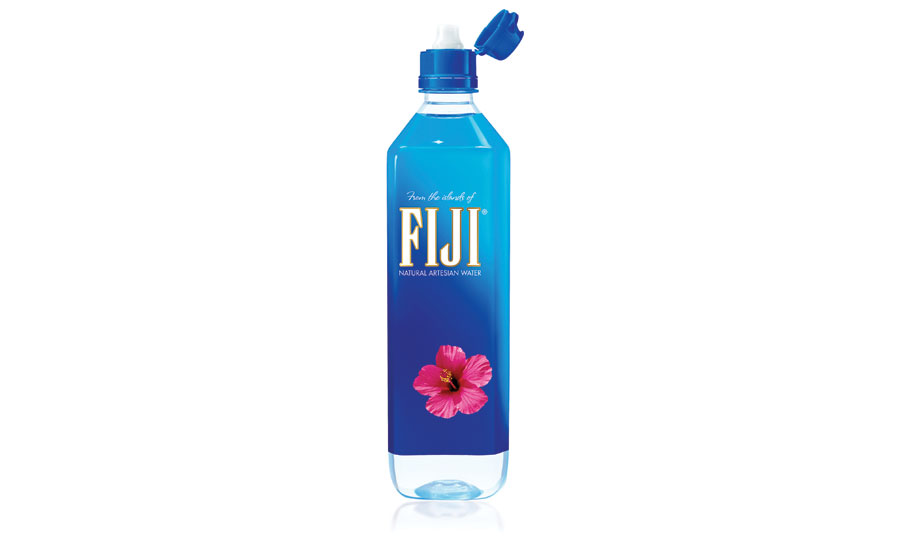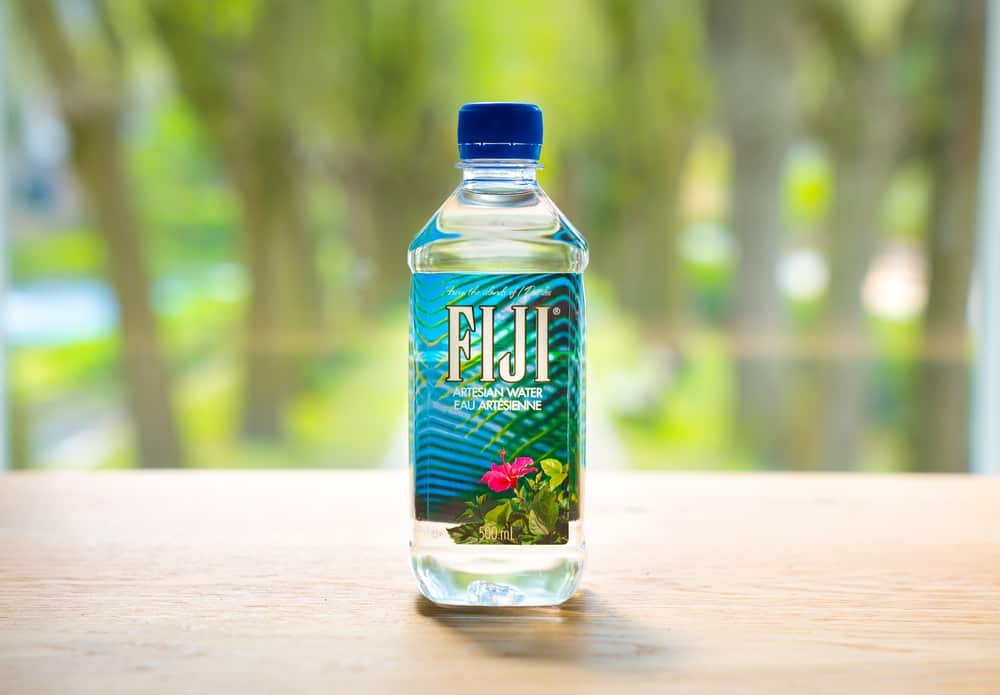Fiji Water is considered healthy due to its natural filtration and minerals. It has a unique mineral profile that aids hydration and wellness.
As one of the most popular bottled waters on the market, Fiji Water captivates consumers with its exotic origins and signature soft, smooth taste. Sourced from an underground aquifer in the remote Fiji Islands, it undergoes a natural purification process that imbues the water with minerals and electrolytes.
This mineral-rich water not only contributes to the body’s daily hydration needs but also boasts a natural alkaline pH, which some health enthusiasts believe can help neutralize acidity in the body. With no added preservatives or flavors, Fiji Water offers a pure and refreshing choice for staying hydrated throughout the day, making it a top pick for quality-seekers in the realm of bottled drinking water.

Fiji Water Origins And Purity Claims
Exploring the Fiji Water origins and purity claims, let’s dive into why this exotic water is often seen cradled in the hands of health enthusiasts and celebrities alike. Sparklingly clear and marketed with an aura of tropical paradise, Fiji Water beckons with tales of faraway springs and untouched sources. But is it truly the nectar it claims to be?
The Journey From Source To Shelf
Every bottle of Fiji Water begins its journey in the remote Yaqara Valley of Viti Levu, one of Fiji’s two main islands. Here’s how it gets from the source into your hands:
- Sourced from an ancient artesian aquifer, deep underground.
- Filtered naturally through volcanic rock, adding minerals and electrolytes.
- Bottled at the source, ensuring no external contamination.
- Shipped across oceans, reaching shelves worldwide while maintaining its purity.
What Makes Fiji Water Unique?
What sets Fiji Water apart from regular tap or mineral water? Look below for these distinctive features:
| Feature | Detail |
|---|---|
| Natural Artisan Source | Originating from an underground aquifer, Fiji Water is untouched by man until you unscrew the cap. |
| Silica Content | Contains silica, a mineral known for its health benefits, including positive effects on skin, hair, and nails. |
| PH Level | Slightly alkaline, Fiji Water has a pH level of 7.7, which can help balance your body’s pH. |
| Electrolytes | Infused with electrolytes such as potassium, magnesium, and sodium, it aids hydration. |
Each characteristic contributes to the premium experience of drinking Fiji Water, but it’s the combination of these qualities that makes it undeniably unique.
Assessing Water Quality: What’s In Your Bottle?
Ever wonder about the water you drink every day? Fiji Water, known for its pure source and sleek bottle, claims to offer hydration with added health benefits. Let’s dive into what exactly you’re sipping from that stylish square silhouette.
Understanding Mineral Content
The minerals in water can affect not just the taste but also your health. Fiji Water prides itself on its rich mineral content, especially silica, which is known for supporting bone and connective tissue health. Here’s what you might find in a bottle:
- Silica – gives water a smooth texture
- Calcium and magnesium – for bone health
- Potassium – aids muscle function
These minerals come from Fiji Water’s natural volcanic source and provide a refreshingly different taste.
Addressing Contamination Concerns
With pollution on the rise, water quality has become a crucial concern. Fiji Water undergoes a thorough filtration process, ensuring it’s free from impurities. The brand assures customers of its commitment to purity with regular quality checks. The table below outlines common contaminants and Fiji Water’s corresponding levels:
| Contaminant | Level in Fiji Water | Standard Limit |
|---|---|---|
| Lead | Non-detectable | 0.015 mg/L |
| Arsenic | Non-detectable | 0.010 mg/L |
| Microplastics | Non-detectable | No standard limit |
As seen in the table, Fiji Water’s efforts to maintain a clean product surpass many industry standards, giving you peace of mind with every sip.
Health Benefits Of Hydration
Staying hydrated is not just about quenching your thirst; it’s a foundation of health. Water is a vital part of many bodily functions and processes, and staying adequately hydrated can have a profound impact on your overall wellness. Fiji Water is one such source that promises not only to hydrate but also to offer the unique benefits of its natural mineral content. Let’s dive into why water is essential and uncover some common myths.
Essential Functions Of Water In The Body
Water is a key component in our body, and it’s involved in a myriad of critical functions:
- Maintains fluid balance: About 60% of the human body is water.
- Regulates temperature: Water participates in sweating and respiration.
- Transports nutrients: Water carries nutrition to cells.
- Removes waste: It helps flush out toxins.
- Lubricates joints: Water keeps joints moving smoothly.
- Supports digestion: It aids in breaking down food.
Myths About Hydration And Health
While water’s importance cannot be overstated, some myths about hydration persist. Let’s clarify a few:
| Myth | Fact |
|---|---|
| 8 glasses a day: | Needs vary based on activity, climate, and other factors. |
| More water equals better skin: | Hydration is vital, but skin health is complex. |
| Caffeinated drinks dehydrate you: | Moderate consumption does not necessarily cause dehydration. |
Drinking Fiji Water contributes to meeting your daily hydration needs while offering the added benefit of minerals from its source. These can include electrolytes like potassium, magnesium, and calcium, which are essential for hydration and health.

Environmental Impact And Ethical Considerations
Exploring the properties of Fiji Water often leads to admiration for its purity and taste. Yet, a crucial aspect involves understanding its environmental and ethical footprints. Such considerations are essential for conscious consumers today.
The Carbon Footprint Of Imported Water
Fiji Water travels thousands of miles to reach consumers. This long journey significantly increases its carbon footprint. The transport involves ships, trucks, and sometimes planes. These are major sources of greenhouse gas emissions.
The process of bottling and distributing Fiji Water requires energy. This energy predominantly comes from fossil fuels, contributing to global warming.
- Using ships for transportation emits large quantities of CO2.
- Trucks distribute water inland, adding to the carbon emissions.
- Plane transportation, when used, is even more carbon-intensive.
Socioeconomic Effects On Fiji’s Locals
Fiji Water’s operations impact the local community. While the company provides jobs, there are concerns about wages and working conditions. Does the water extraction affect local resources? This question also arises.
Access to clean drinking water can be limited for Fijians because of the exportation. Furthermore, land rights issues may emerge, affecting local livelihoods.
| Concern | Detail |
|---|---|
| Employment | Jobs offered, but fair wages questioned. |
| Water Rights | Conflict over water usage between company and locals. |
| Land Issues | Potential disputes over land used for sourcing water. |
Community investments are part of Fiji Water’s response to these issues. Commitments to infrastructure and education aim to benefit local Fijians. However, ongoing dialogue remains necessary to ensure fairness and sustainability.
Alternatives To Bottled Water
Choosing the right water to drink is vital for health. Fiji water is a popular bottled brand. But bottled water can impact the environment. Let’s explore other options that offer hydration without harm.
Tap Water: Safety And Accessibility
Tap water is a readily available and affordable choice. In many countries, it meets high safety standards. Authorities test it regularly for contaminants. This ensures it is safe to drink. Below are reasons to consider tap water:
- Low cost: Tap is cheaper than bottled.
- Less waste: No bottles mean less plastic waste.
- Convenience: Accessible from home faucets.
Exploring Filtered And Spring Water Options
Filtered water is another sustainable choice. It removes impurities from tap water. Filters can be pitcher based or attach to a faucet. Here are benefits of filtered water:
| Type of Filter | Benefits |
|---|---|
| Pitcher Filters | Portable and easy to use |
| Faucet Filters | Convenient, filters water directly |
Spring water is natural water that comes from a spring source. It is flavorful and contains minerals. Consider these features of spring water:
- Natural filtration process
- Mineral-rich composition
Choose wisely and stay hydrated in eco-friendly ways. There are many alternatives to bottled water.
Making Informed Choices
Choosing what we drink is important for our health. Fiji Water is a popular brand, but is it good for you? Learn how to separate facts from marketing and understand your hydration needs.
Analyzing Marketing Vs. Reality
Adverts can be tricky. They show Fiji Water as pure and healthy. But let’s look closer. Fiji Water comes from an underground source in Fiji. The company claims it’s untouched by humans. This gives a picture of purity. Still, we must ask if it’s different from other bottled waters or even tap water.
Questions to consider:
- Is the mineral content of Fiji Water beneficial?
- Does Fiji Water go through any purification?
- What does research say about bottled vs. tap water quality?
Personal Hydration Needs And Preferences
Everyone’s body is different. Some might prefer the taste of Fiji Water. Others might not notice a difference. It is crucial to know what works for you. Let’s compare:
| Hydration Factor | Fiji Water | Alternatives |
|---|---|---|
| Taste | Silky, smooth | Varies by source |
| Mineral Content | High silica, magnesium, and calcium | Differs for every brand or tap |
| Cost | Typically higher-priced | Tap water is more affordable |
| Environmental Impact | Plastic bottles affect the planet | Reusable alternatives are greener |
Check your personal hydration goals. Do you want minerals in your water? Do you care about the taste? Does cost matter to you? What about your impact on the environment? Understanding these can guide your choice.

Frequently Asked Questions Of Is Fiji Water Good For You
What Are The Health Benefits Of Fiji Water?
Fiji Water is rich in minerals like silica, calcium, and magnesium, which can contribute to strong bones, teeth, and support overall health. Its high silica content may also promote healthy skin and hair.
How Does Fiji Water Compare To Tap Water?
Fiji Water undergoes natural filtration and possesses a unique mineral profile, giving it a distinct taste compared to tap water. It’s also bottled at the source, free from human contact, which some consumers prefer for purity reasons.
Is Fiji Water Worth The Cost?
Fiji Water often costs more due to its source and bottling process, which ensures purity and a unique mineral composition. Whether it’s worth the cost depends on personal preference for taste and perceived health benefits.
Does Fiji Water Have A Different Ph Level?
Yes, Fiji Water is alkaline with a pH level of around 7. 7, which is higher than the neutral pH of 7. This alkaline nature can help balance the body’s pH and aid in reducing acidity.
Conclusion
Exploring the benefits of Fiji Water reveals its unique mineral profile and pure source. Yet, it’s crucial to weigh cost and environmental impact against personal hydration needs. Ultimately, Fiji Water can be a healthy choice, provided it aligns with your values and lifestyle.
Choose wisely for optimal well-being.

